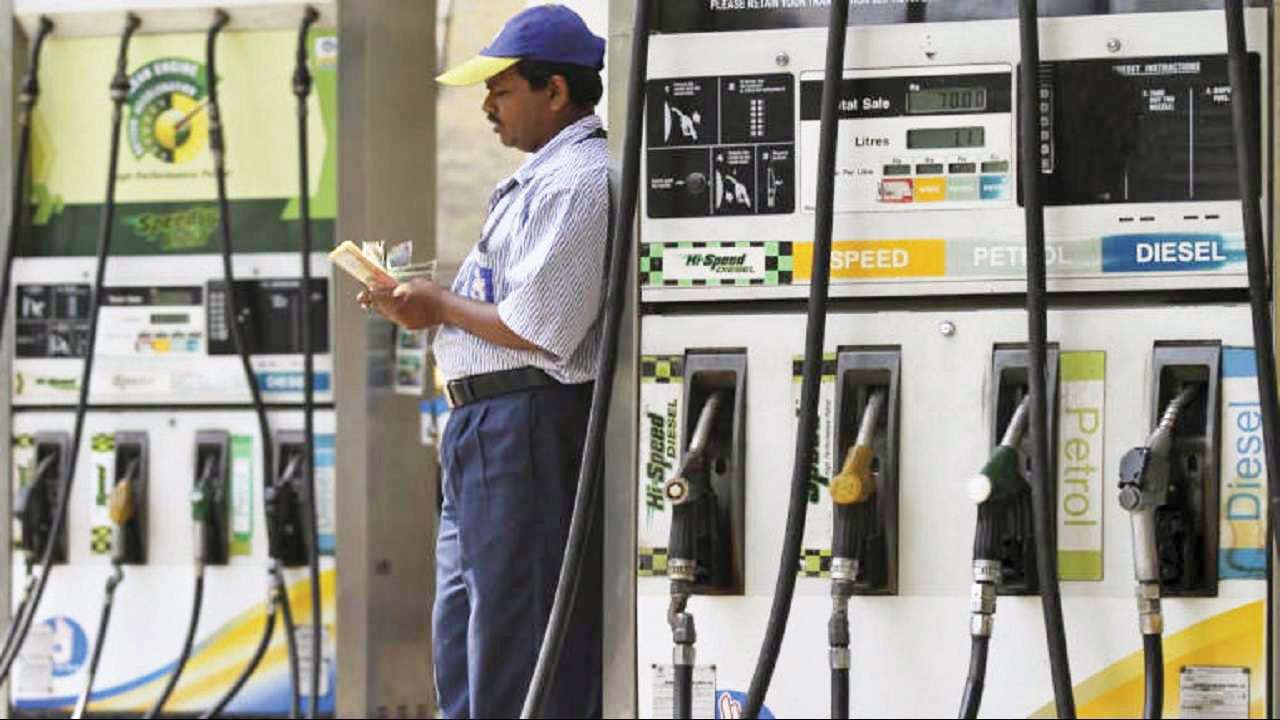
The word profiteering, once associated only with corporate houses, and not seen in the best of light, seems to have now become a perfectly acceptable term, courtesy the manner in which the state and central governments are literally milking the common man in the form of high taxation on petrol and diesel.
In Ahmedabad, petrol and diesel prices have been going up 10-20 paise on a daily basis for the past several days. The single-day hike may not look like a huge increase per se, but the cumulative increase is hurting the customers, and hard. Petrol has become dearer by over 6%, and diesel by 7% in just over a month.
On Sunday, petrol prices in Ahmedabad rose to an all-time high of Rs79.64 per litre (Rs75 on August 1), and diesel touched Rs77.92 (Rs72.69 on August 1). Petrol and diesel are also at record highs in Mumbai (Rs87.77), Delhi (Rs80.38) and other places. Not surprisingly, customers are feeling the pinch, and many are angry, and justifiably too.
Government levies account for almost half of the total fuel price. The basic price of petrol is Rs42 per litre, which becomes almost Rs80 by the time it reaches the customer's tank. The Centre pockets Rs19.48 on one litre of diesel, while in Gujarat, the state government earns about Rs14 as Value Added Tax (VAT) and Cess. Similarly, in the case of diesel, the Centre collects Rs15.33 as excise duty and the state Rs11 as VAT. The transport cost and dealer's commission make up the remaining cost.
While high taxation is an issue, the more concerning thing is the manner in which the Centre continues to ignore demands to lower levies, in total disregard for the common man's pain.
Petroleum minister Dharmendra Pradhan has gone on record to describe reduction in taxes as a knee-jerk reaction, and literally ruled out any cut in taxes. He has also been attributing the sharp rise in fuel prices to "external factors" such as weakness in the rupee, and volatile oil.
True, the Indian currency has depreciated significantly against the dollar, and that crude prices have also been unpredictable, but lowering of excise duty on the two fuels when prices are high is as much within the government's control as it was when the duty was hiked as many as nine times to take advantage of falling crude prices and to jack up revenues.
Finance minister Arun Jaitley has argued that lowering of excise duty on fuels would disturb fiscal maths, and hence it was not a feasible option. At a time when the Indian GDP growth has rebounded - it grew by 8.2% in the first quarter of the current fiscal - and both direct and indirect tax collections are strong, this argument doesn't look too convincing.
Suggestions have been made by those at the Centre that states, which are benefiting from higher fuel prices, should lower the taxes. However, states are reluctant to let go of the easy money that is coming their way.
The Opposition is up in arms over this "loot" and is demanding reduction in taxes to provide some relief to the common man from scorching fuel prices. A Bharat Bandh call has also been given for September 10 to press the government into action. It remains to be seen till when the party that came to power by promising relief from 'mehangai' can resist doing so.
The writer is senior assistant editor with DNA